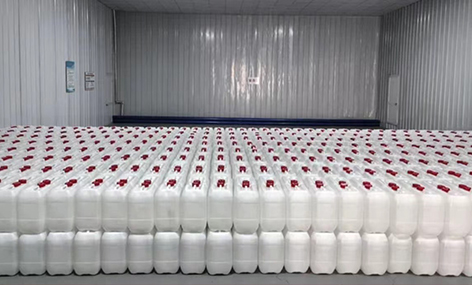
Oct . 21, 2024 18:48 Back to list
Understanding the Uses and Benefits of Edible Acetic Acid in Food Preparation
The Importance of Edible Acetic Acid An Insight into Its Applications and Benefits
Acetic acid, a key component of vinegar, has been utilized throughout history for its culinary, preservative, and medicinal properties. When discussing edible acetic acid, the focus is primarily on its safety and applications in food production and preservation, making it an essential substance in both household and industrial contexts.
Understanding Edible Acetic Acid
Edible acetic acid, commonly referred to as acetic acid when associated with food products, is a colorless liquid organic compound with a pungent smell and a sour taste. It is produced both through synthetic routes and naturally through fermentation processes. The most familiar form of edible acetic acid is vinegar, which typically contains 4% to 8% acetic acid and is used in a variety of culinary applications.
Culinary Uses
Acetic acid plays a crucial role in food preparation, enhancing flavors and acting as a critical ingredient in dressings, marinades, and pickling solutions. Its sour taste contrasts beautifully with the richness of oils and other ingredients, creating a balance that elevates the profile of dishes. Beyond flavor enhancement, vinegar derived from acetic acid is a staple in many cultures, used in regional dishes from sauerkraut in Germany to sushi rice in Japan.
Moreover, acetic acid's use in food processing extends to enhancing preservation. It acts as a natural preservative by lowering pH levels, which inhibits the growth of spoilage-causing microorganisms. This property is particularly beneficial for the long-term storage of fruits and vegetables. The pickling process, which involves immersing food in vinegar or an acid solution, has been a staple method for centuries to preserve seasonal produce.
Health Benefits
edible acetic acid

The consumption of acetic acid in moderate amounts can offer health benefits. Studies have suggested that vinegar may aid in blood sugar regulation, weight management, and even reducing cholesterol levels. The acetic acid present in vinegar has shown potential in improving insulin sensitivity, which can be particularly beneficial for individuals with type 2 diabetes.
Additionally, acetic acid exhibits antimicrobial properties, which may contribute to food safety. Research indicates that it can effectively reduce pathogens in food products, enhancing the overall microbiological quality of certain foods. This property is crucial, as it aligns with the increasing consumer demand for natural food safety solutions over synthetic chemical preservatives.
Industrial Applications
Beyond the kitchen, edible acetic acid has significant industrial uses. In the food industry, it is vital in producing a variety of products, including sauces, condiments, and even baked goods. Its acidifying properties are also harnessed in dairy products, where it helps in curdling milk during cheese production.
Moreover, acetic acid is a key component in the manufacture of biopolymers and green chemicals. With a growing emphasis on sustainability, industries are exploring the potential of acetic acid to replace traditional petrochemical derivatives, thereby reducing environmental impact. The transition to more eco-friendly production methods is critical in addressing global challenges related to climate change and resource depletion.
Safety and Regulatory Standing
When used in food preparation, acetic acid is regarded as safe by various health organizations, including the World Health Organization (WHO). However, it is essential to use it in appropriate concentrations to avoid adverse effects, such as irritation or damage to skin and mucous membranes.
In conclusion, edible acetic acid is a versatile compound that plays a significant role in both culinary and industrial applications. Its ability to enhance flavors, preserve food, and potentially provide health benefits make it a valuable ingredient in the modern kitchen. As the food industry continues to evolve, the significance of acetic acid in promoting sustainability and food safety will only grow. Whether enjoyed in a simple salad dressing or as part of a complex fermentation process, the contributions of edible acetic acid are undeniable, showcasing its importance in our diets and beyond.
